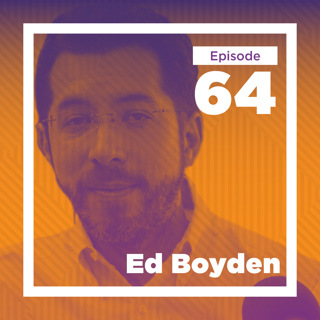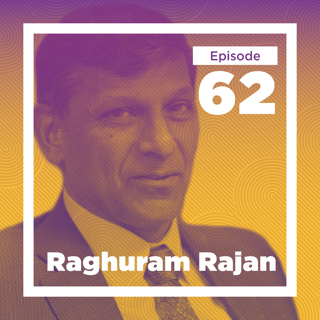
Karl Ove Knausgård on Literary Freedom
What is Karl Ove Knausgård’s struggle, exactly? The answer is simple: achieving total freedom in his writing. “It’s a space where I can be free in every sense, where I can say whatever, go wherever I want to. And for me, literature is almost the only place you could think that that is a possibility.” Knausgård’s literary freedom paves the way for this conversation with Tyler, which starts with a discussion of mimesis and ends with an explanation of why we live in the world of Munch’s The Scream. Along the way there is much more, including what he learned from reading Ingmar Bergman’s workbooks, the worst thing about living in London, how having children increased his productivity, whether he sees himself in a pietistic tradition, thoughts on Bible stories, angels, Knut Hamsun, Elena Ferrante, the best short story (“Tlön, Uqbar, Orbis Tertius”), the best poet (Paul Celan), the best movie (Scenes from a Marriage), and what his punctual arrival says about his attachment to bourgeois values. Read a full transcript enhanced with helpful links. Recorded March 15th, 2019 Other ways to connect Follow us on Twitter and Instagram Follow Tyler on Twitter Email us: cowenconvos@mercatus.gmu.edu Subscribe at our newsletter page to have the latest Conversations with Tyler news sent straight to your inbox.
8 Maj 20191h

Margaret Atwood on Canada, Writing, and Invention (Live at Mason)
Margaret Atwood defines the Canadian sense of humor as “a bit Scottish,” and in this live conversation with Tyler, she loves to let her own comedic sensibilities shine. In addition to many other thoughts about Canada — it’s big after all — she and Tyler discuss Twitter, biotechnology, Biblical history, her families of patents, poetry, literature, movies, and feminism. Is it coincidence that Atwood started The Handmaid’s Tale in West Berlin during 1984? Does she believe in ghosts? Is the Western commitment to free speech waning? How does she stay so productive? Why is she against picking favorites? Atwood provides insight to these questions and much more. Read a full transcript enhanced with helpful links. Recorded April 9th, 2019 Other ways to connect Follow us on Twitter and Instagram Follow Tyler on Twitter Follow Margaret on Twitter Email us: cowenconvos@mercatus.gmu.edu Subscribe at our newsletter page to have the latest Conversations with Tyler news sent straight to your inbox.
24 Apr 20191h 14min

Ed Boyden on Minding your Brain
Ed Boyden builds the tools and technologies that help researchers think about and treat the brain, an organ we still know surprisingly little about. When it comes to how our brains make decisions, form emotions, and exhibit consciousness, there is still a lot we can learn. But just as fascinating as the tools Boyden and his team build is the way in which they build them. Boyden employs a number of methods to design more useful tools, such as thinking backwards from the problem, hiring eclectic talent, practicing a particular type of meditation, waking long before dawn, or just trying the opposite of what’s already been attempted. Would emulating the brain require emulating the entire body? Is consciousness fundamental to the universe, or is it actually just an illusion? Does a certain disharmony in thought lead to creativity? Why don’t people feel comfortable talking about their brains? And why is it so hard for us to be empathetic with one another? Listen to this engaging and brain-stimulating conversation with Tyler to hear his perspective. Read a full transcript enhanced with helpful links. Recorded February 5th, 2019 Other ways to connect Follow us on Twitter and Instagram Follow Tyler on Twitter Follow Ed on Twitter Email us: cowenconvos@mercatus.gmu.edu Subscribe at our newsletter page to have the latest Conversations with Tyler news sent straight to your inbox.
10 Apr 20191h 1min

Emily Wilson on Translations and Language
In a recent Twitter thread, Emily Wilson listed some of the difficulties of translating Homer into English. Among them: “There aren’t enough onomatopoeic words for very loud chaotic noises” (#2 on the list), “It’s very hard to come up with enough ways to describe intense desire to act that don’t connote modern psychology” (#5), and “There is no common English word of four syllables or fewer connoting ‘person particularly favored by Zeus due to high social status, and by the way this is a very normal ordinary word which is not drawing any special attention to itself whatsoever, beyond generic heroizing.’” (#7). Using Twitter this way is part of her effort to explain literary translation. What do translators do all day? Why can the same sentence turn out so differently depending on the translator? Why did she get stuck translating the Iliad immediately after producing a beloved translation of the Odyssey? She and Tyler discuss these questions and more, including why Silicon Valley loves Stoicism, whether Plato made Socrates sound smarter than he was, the future of classics education, the effect of AI on translation, how to make academia more friendly to women, whether she’d choose to ‘overlive’, and the importance of having a big Ikea desk and a huge orange cat. Read a full transcript enhanced with helpful links. Recorded March 7th, 2019 Other ways to connect Follow us on Twitter and Instagram Follow Tyler on Twitter Follow Emily on Twitter Email us: cowenconvos@mercatus.gmu.edu Subscribe at our newsletter page to have the latest Conversations with Tyler news sent straight to your inbox.
27 Mars 201956min

Raghuram Rajan on Understanding Community
Raghuram Rajan thinks a lot about how to empower individuals, both at the community and international level. In his new book, Rajan draws upon experience both as an academic and policymaker to break down how the three pillars of society — the state, markets, and communities — interact with each other, and argues that we’re currently balancing this complex relationship wrong. How much has the U.S. actually fixed the financial system? Does India have the best food in the world? Why does China struggle to maintain a strong relationship with allies? Why are people trading close-knit communities for isolating cities? And what types of institutions are we missing in our social structure? Listen to Rajan’s thorough conversation with Tyler to dive into these questions and much more. Read a full transcript enhanced with helpful links. Recorded February 26th, 2019 Other ways to connect Follow us on Twitter and Instagram Follow Tyler on Twitter Email us: cowenconvos@mercatus.gmu.edu Subscribe at our newsletter page to have the latest Conversations with Tyler news sent straight to your inbox.
13 Mars 201956min

Sam Altman on Loving Community, Hating Coworking, and the Hunt for Talent
Founders aren’t superheroes, says Sam Altman.They may play extreme sports, respond to emails within seconds, and start billion-dollar companies, but they are rarely the product of extraordinary circumstance. In fact, they tend to be solidly upper-middle class, reasonably smart, and with loving parents. So would Sam fund Peter Parker? What about Bruce Wayne? Tyler and Sam discuss these burning questions and more, including what’s wrong with San Francisco, Napoleon’s underrated skill, nuclear energy, the greatest invention of the Industrial Revolution, his rant against coworking spaces, UBI and AGI, risk and regret, optimism and beauty, and why venture capitalists don’t have superpowers either. Read a full transcript enhanced with helpful links. Recorded January 28th, 2019 Other ways to connect Follow us on Twitter and Instagram Follow Tyler on Twitter Follow Sam on Twitter Email us: cowenconvos@mercatus.gmu.edu Subscribe at our newsletter page to have the latest Conversations with Tyler news sent straight to your inbox.
27 Feb 20191h 8min

Jordan Peterson on Mythology, Fame, and Reading People
Jordan Peterson joins Tyler to discuss collecting Soviet propaganda, why he’s so drawn to Jung, what the Exodus story can teach us about current events, his marriage and fame, what the Intellectual Dark Web gets wrong, immigration in America and Canada, his tendency towards depression, Tinder’s revolutionary nature, the lessons from The Lord of the Rings and Harry Potter, fixing universities, the skills needed to become a good educator, and much more. Read a full transcript enhanced with helpful links. Recorded January 27th, 2019 Other ways to connect Follow us on Twitter and Instagram Follow Tyler on Twitter Follow Jordan on Twitter Email us: cowenconvos@mercatus.gmu.edu Subscribe at our newsletter page to have the latest Conversations with Tyler news sent straight to your inbox Photo credit: Gage Skidmore
13 Feb 201953min

Noel Johnson and Mark Koyama on *Persecution and Toleration*
How did religious freedom emerge — and why did it arrive so late? In their forthcoming book, fellow Mason economists Noel Johnson and Mark Koyama argue that while most focus on the role of liberal ideas in establishing religious freedom, it was instead institutional changes — and the growth of state capacity in particular — that played the decisive role. In their conversation with Tyler, Johnson and Koyama discuss the ‘long road to religious freedom’ and more, including the link between bad weather and Jewish persecution, why China evolved into such a large political unit, whether the Black Death proves Paul Romer wrong, scapegoating, usury prohibitions in history, and the economic impact of volcanic eruptions. Read a full transcript enhanced with helpful links. Recorded January 17th, 2019 Other ways to connect Follow us on Twitter and Instagram Follow Tyler on Twitter Follow Mark on Twitter Email us: cowenconvos@mercatus.gmu.edu Subscribe at our newsletter page to have the latest Conversations with Tyler news sent straight to your inbox.
30 Jan 20191h 16min






















